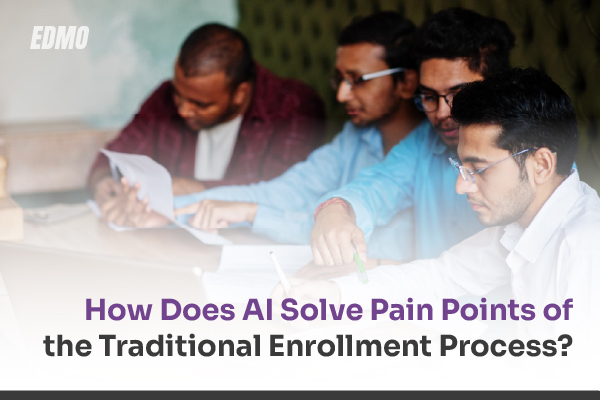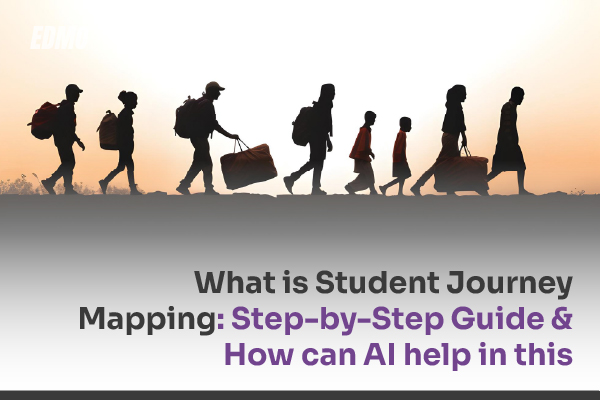In today’s rapidly changing job market, traditional degrees are no longer the only indicators of an individual’s qualifications. Employers increasingly seek candidates with specific skills and competencies that align with industry demands. This shift highlights the growing importance of micro-credentials in higher education, which provide learners with a flexible, targeted, and efficient way to upskill and remain competitive.
- A 2024 report indicates that 51% of higher education leaders worldwide have incorporated micro-credentials into their curricula. Additionally, 53% of these leaders state that their institutions currently offer micro-credentials for academic credit, with 82% planning to do so within the next five years.
- Between 2021 and 2022, there was an estimated 95% increase in the availability of micro-credential programs, signifying a rapid adoption of these offerings in higher education.
- Among institutions that provide micro-credentials, 97% of global higher education leaders believe these programs enhance students’ long-term career opportunities. Furthermore, 93% of leaders agree that offering non-degree credentials, including micro-credentials, can help institutions address declining enrollment numbers and generate new revenue streams.
Micro-Credentials: A Quick Path to Career Advancement!
Although there isn’t a universal definition for micro-credentials, they can be understood as digital or physical short, focused certifications that validate specific skills or knowledge in a particular field. Unlike traditional degrees, they are quicker to obtain, cost-effective, and highly specialised, making them ideal for professionals seeking to upskill or change careers.
They are becoming increasingly popular due to several reasons:
- Flexibility: Learn at your own pace.
- Industry Relevance: Aligns with job market needs.
- Affordability: More cost-effective than complete degree programs.
- Career Boosting: Improves resumes and job prospects.
Micro-Credentials: Transforming American Higher Education
A survey of over 1,000 campus leaders from more than 850 institutions across 89 countries found that 51% of higher education leaders have incorporated micro-credentials into their curricula. Out of the 1,860 universities in the United States listed in U.S. News & World Report, 127 institutions (6.8%) offer micro-credentials through platforms like Credly. On average, 76% of students worldwide—and 74% in the U.S.—are more likely to enrol in degree programs that provide industry-recognized micro-credentials.

Source: Micro-Credentials in US Higher Education: An Empirical Analysis
Micro-credentials are changing the landscape of higher education in the U.S. by providing flexible, skill-based learning opportunities that complement traditional degrees. More universities and colleges are incorporating these short, specialised programs to help students and professionals remain competitive in a rapidly evolving job market. Some
- Bridging the Skills Gap: Assists students in acquiring industry-relevant skills employers seek.
- Enhancing Degree Programs: Supplements traditional degrees with specialised knowledge and expertise.
- Boosting Employability: Equips graduates with job-ready skills that help them stand out in the job market.
- Flexible and Fast-Track Learning: Allows learners to upskill without committing to full-time programs.
- Stronger Industry-Academia Partnerships: Encourages universities to collaborate with companies to create career-focused micro-credentials.
Let’s look at a few instances of US colleges that provide micro-credentials.
- University of Michigan: Provides a variety of micro-credentials with a focus on public health and data science via platforms like Coursera.
- Harvard University: Offers micro-credentials in computer science and business analytics, among other subjects, via its online learning programs.
- Massachusetts Institute of Technology (MIT): MIT provides MicroMasters programs in several fields through its Open Learning initiative, enabling students to acquire advanced skills and certifications.
- Ohio State University: Ohio State’s Fisher College of Business has introduced a financial technology micro-credential program to give students specialised skills in the fintech industry.
How Universities Evaluate Micro-Credentials & How AI is Revolutionizing the Process
The criteria for evaluating micro-credentials at the university level typically focus on maintaining academic rigour, ensuring industry relevance, and assessing learner competency. Although criteria may differ among institutions, most universities adhere to these key standards:
- Learning Outcomes & Competency-Based Assessment: Clearly defined skills with measurable objectives and practical demonstrations.
- Assessment Methods: Includes project-based work, exams, portfolio submissions, and industry reviews.
- Credit Transfer & Stackability: Certain credentials can contribute toward degrees or certificates.
- Quality Assurance & Accreditation: Ensures alignment with academic standards, accreditation bodies, and third-party verification (e.g., Credly, Coursera).
- Employer & Industry Recognition: Focuses on industry relevance and alignment with the job market.
- Student Engagement & Completion Rates: Tracking participation, gathering feedback, and measuring success rates.
Texas Woman’s University employs a rubric to evaluate proposals based on specific criteria, categorizing them as “Approved,” “Approved with Modifications,” or “Rejected” according to their adherence to established standards.
Similarly, the University of Wisconsin-Milwaukee mandates that micro-credential proposals undergo a thorough approval process. This process includes evaluations from the relevant department and curriculum committee to ensure academic rigour and alignment with the university’s institutional goals.
Let’s learn how AI can help with this.
Artificial Intelligence (AI) greatly improves micro-credential programs in U.S. higher education by offering personalized learning experiences, more efficient assessments, and better alignment with industry needs. Here’s how AI contributes:
Personalized Learning Paths
AI algorithms analyze individual learner data to customize educational content, ensuring each student receives a personalized learning experience that meets their needs and pace.
For example, the University of New Orleans offers the “Empowering AI Literacy” micro-credential, a self-paced program designed to help students understand and navigate the AI-driven world.
Efficient Assessment and Feedback
AI-powered tools enable automated grading and offer instant feedback, which helps identify areas where learners may need improvement on time. For example, Pearson has incorporated AI study tools into its higher education products, resulting in a 5% increase in underlying sales for the third quarter.
Similarly, EDMO’s Conversation Intelligence revolutionizes student interactions through AI-powered chatbots and voice assistants. These tools offer real-time, personalized support across multiple channels, from admissions inquiries to financial aid guidance.
Alignment with Industry Needs
AI plays a crucial role in identifying emerging skill requirements by analyzing current industry trends and job market data. This allows universities to update their micro-credential offerings to remain relevant.
For example, a recent report by McKinsey indicates that employers are increasingly looking for candidates proficient in AI platforms. In response, higher education institutions are enhancing their curricula to meet this demand.
Summary
Micro-credentials are transforming higher education in the U.S. by providing flexible, skill-based learning that aligns with industry demands. According to a 2024 report, 51% of universities have adopted micro-credentials, with 82% planning to expand their offerings. Artificial intelligence (AI) enhances these programs by personalizing learning experiences, automating assessments, and ensuring the content remains relevant to industry needs. Notable institutions such as Harvard, MIT, and the University of Michigan are offering micro-credentials across various fields. That’s where EDMO comes in. Our Document Intelligence, Conversation Intelligence, and Human Intelligence solutions make the enrollment and admissions process faster and easier. Imagine responding to inquiries in under a minute and shortening the application process from several weeks to a few hours. Plus, our tools reduce staff workload by 40% and increase the application-to-enrollment rate by five percentage points.
Also Read:
Crisis in Enrollment: Strategies to Recover and Grow Your Student Body
Maximizing Enrollment Efficiency: The Power of Automation
EDMO and One Education join forces to help Southeast Asian study abroad aspirants
Role of AI in Enhancing Campus Diversity and Inclusion







